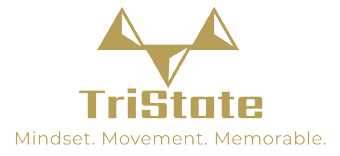The First Step in Becoming a Better Athlete: Building Awareness
There was a point in my training where I thought the more time I spent in the gym, the better I’d get. More volume, more sessions, more work—especially during my CrossFit days, and honestly, even early in my weightlifting journey. But that approach didn’t give me the return I was looking for. Eventually, I burned myself out, ran into injuries, and started to see that I wasn’t improving—I was just doing more. That’s when I started to really understand the value of awareness.
Awareness isn’t just about knowing what’s written in your training plan. It’s about listening to your body, checking in with your energy, your recovery, your stress levels—and having honest conversations with your coach. Being a dad of two, coaching athletes, running a barbell club, and working full-time, I’ve had to learn the hard way that training doesn’t happen in a vacuum. Life stress impacts performance. And if you ignore that, it’ll catch up with you.
Awareness shows up in a lot of ways:
Not communicating with your coach and expecting things to magically work
Pushing through hard sessions without fueling, sleeping, or mentally showing up
Not recognizing that what you did the day before—or all weekend—impacts today’s training
We use check-ins and communication forms with our athletes to open those conversations. After meets or training cycles, we talk about what worked, what didn’t, how they’re feeling. One of the best examples of awareness turning into progress was an athlete and friend of mine who had big goals—like qualifying for AO Finals. She’s someone who gives a lot to others, and we had to have a real talk: if this is your goal, some things have to shift. Training needed to be protected. Sleep and nutrition needed to be dialed in. And to her credit, she made those sacrifices—and we got her to AO Finals.
If you’re just getting started with this, journaling is a great place to begin. It doesn’t have to be fancy. Write a couple sentences after each session. How did you sleep? What did you eat? How did you feel walking in and walking out? You’ll start to see patterns—and once you do, you can train smarter.
That’s what awareness really gives you: better decisions. More intention. And a better shot at becoming the athlete you actually want to be.
